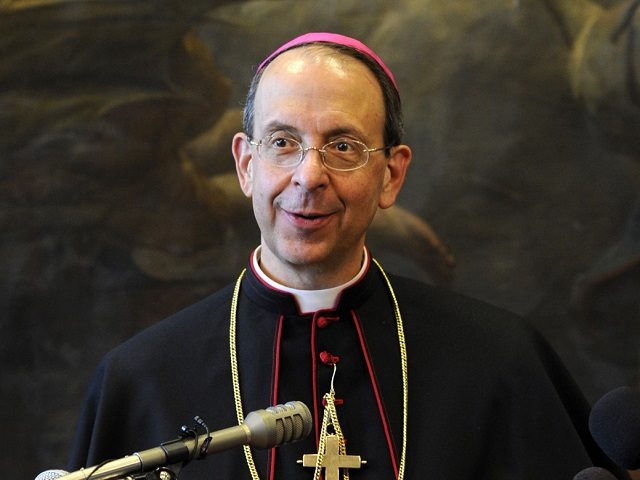The Chairman of the U.S. Bishops’ (USCCB) Committee for Religious Liberty praised the Supreme Court’s Monday ruling in Trinity Lutheran Church v. Comer, calling it a “landmark victory for religious freedom.”
In its decision, the U.S. Supreme Court held that the exclusion of churches from “an otherwise available public benefit” violates the Free Exercise Clause of the U.S. Constitution.
“The Supreme Court rightly recognized that people of faith should not be discriminated against when it comes to government programs that should be made available to all,” said the USCCB’s Archbishop William E. Lori of Baltimore.
Trinity Lutheran’s preschool sought to participate in the State of Missouri’s scrap tire program, which would have allowed it to repave its playground with recycled tire pieces in order to provide a softer and safer playground surface for children.
The Court’s ruling “marks a step in the right direction toward limiting the effects of the pernicious Blaine Amendments that are in place in many states around the country,” Lori said.
“Blaine Amendments to state constitutions, most of which date back to the nineteenth century, stem from a time of intense anti-Catholic bigotry in many parts of the country. We are glad to see the Supreme Court move toward limiting these harmful provisions, which have restricted the freedom of faith-based organizations and people of faith to serve their communities,” he added.
In her dissent, Justice Sonia Sotomayor—who describes herself as a “lapsed Catholic”—said she sees darker forces at work in the Lutheran preschool’s wish to participate in a state-funded project for resurfacing playgrounds.
“To hear the Court tell it, this is a simple case about recycling tires to resurface a playground. The stakes are higher,” she declared. “This case is about nothing less than the relationship between religious institutions and the civil government—that is, between church and state.”
The ruling of the Court’s majority “permits direct subsidies for religious indoctrination,” the Obama-appointee warned. Allowing public funds (available to all) for resurfacing a Christian playground constitutes the establishment of religion, she suggests.
In the conclusion to her rambling, 9,000-word dissent, Sotomayor warns that in its ruling, the Court has reduced “separation of church and state” to “a constitutional slogan, not a constitutional commitment.”
Curiously—for a Constitutional scholar—Sotomayor makes the common error of referring to the separation of church and state as a part of the Constitution, when, in fact, it appears nowhere in that foundational text. In other words, at best it is just a slogan.
The famous and often misinterpreted phrase about a “wall of separation between Church & State” comes rather from an 1802 letter that President Thomas Jefferson wrote to the Danbury Baptist Association. Jefferson himself, it should be noted, endorsed the use of federal funds to build churches and to support Christian missionaries working among the native American Indians, and he would have been aghast to learn his words were being used to justify withholding funds from a preschool just because it was Christian.
Sotomayor’s dissent also contains a rare grammatical error, unusual in the official texts of the nation’s highest court. “The Church’s playground surface—like a Sunday School room’s walls or the sanctuary’s pews—are [sic] integrated with and integral to its religious mission,” she wrote.
Her faux pas has led some attentive wags to suggest that Justice Sotomayor is advocating dissent not only from religious freedom, but also between subjects and verbs.
Follow Thomas D. Williams on Twitter Follow @tdwilliamsrome


COMMENTS
Please let us know if you're having issues with commenting.